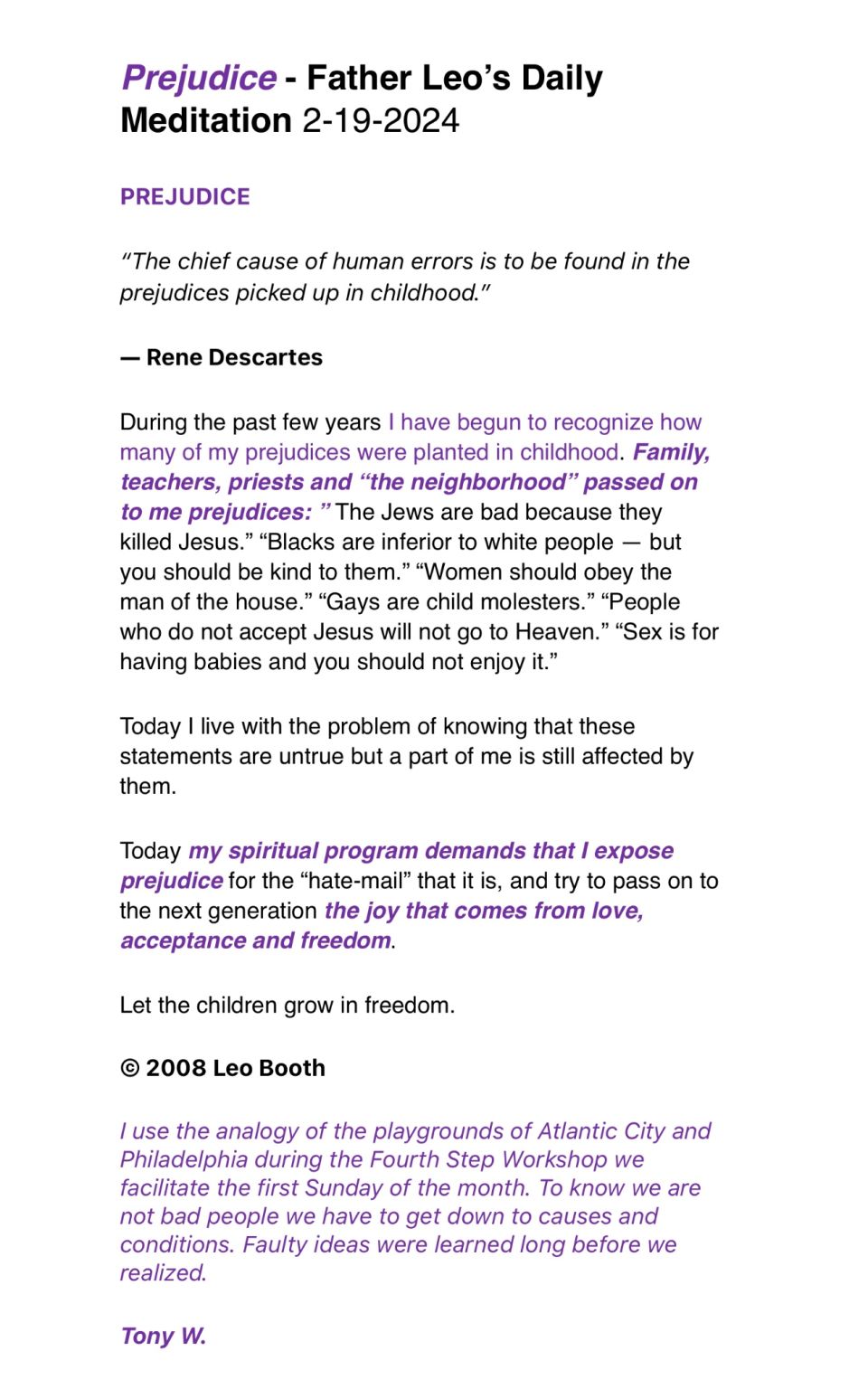In an increasingly polarized world, the Bahá’í Faith offers profound insights into the root causes of conflict, particularly the insidious nature of prejudice and bigotry. This exploration invites individuals to reassess ingrained beliefs and societal norms, serving as a catalyst for transformative change. The teachings of Bahá’u’lláh, the founder of this religion, illuminate a pathway toward unity, harmony, and ultimately, peace.
Prejudice manifests in various forms—racial, religious, cultural, and socioeconomic. These biases not only fracture communities but also incite hostility and violence. At the core of Bahá’í teachings is the assertion that the fundamental cause of war lies within the human psyche: prejudiced thoughts and divisive attitudes. By comprehensively examining these ideas, we can begin to cultivate a more inclusive worldview that embraces diversity.
To understand the depth of this assertion, one must first grasp the nature of prejudice. It is often born out of ignorance and fear, leading to a misconception of ‘the other.’ Bahá’í teachings encourage individuals to seek knowledge and understanding as antidotes to ignorance. The pursuit of education is not merely an intellectual endeavor; it is a spiritual obligation that can dismantle the walls erected by prejudice.
Bahá’í writings poignantly describe humanity as one family. This metaphor emphasizes the interconnectedness of all individuals, suggesting that any act of prejudice against one is a betrayal of the entire human race. By fostering a mindset of universal brotherhood, the potential for societal transformation becomes palpable. Such a radical reimagining compels people to recognize the dignity of every person—regardless of their background—thereby undermining the fabric of bigotry.
The concept of “oneness of humanity” is paramount in addressing the root cause of conflict. In modern discourse, calls for unity are often met with skepticism; however, Bahá’í teachings present unity not merely as an ideal but as a necessity for the survival of civilization. In recognizing our shared humanity, we begin to disassemble the prejudices that fuel discord. This shift in perspective is crucial as it pivots the narrative from “us versus them” to “we together.”
Particularly compelling is the Bahá’í emphasis on the equality of men and women. This teaching challenges deeply entrenched societal norms that perpetuate gender discrimination, illustrating how such biases have historically contributed to conflict. By advocating for gender equality, the Bahá’í Faith underscores the importance of inclusivity in peacebuilding efforts. Empowering women offers not only a moral imperative but also a pragmatic strategy for fostering a more harmonious society.
Furthermore, the Bahá’í perspective on diversity extends beyond gender to encompass a multitude of identities, including race, ethnicity, and belief systems. Embracing diversity is not merely an acknowledgment of differences; it is a celebration of the multifaceted nature of humanity. The recognition that diverse perspectives enhance collective understanding can serve as a unifying force rather than a divisive one. This understanding opens new avenues for dialogue and reconciliation, diminishing the propensity for conflict.
Yet, the journey towards overcoming prejudice is not devoid of challenges. The struggle against ingrained biases necessitates perseverance and self-reflection. Individuals must confront their own prejudices, a task that often entails discomfort and vulnerability. The Bahá’í teachings advocate for personal accountability, encouraging followers to engage in continuous self-examination to root out any latent discriminatory thoughts. Each individual’s contribution to global harmony begins with a commitment to personal transformation.
In contemplating the role of education in dismantling bigotry, it is imperative to recognize the potential of youth as agents of change. Bahá’í communities around the world prioritize educating young people about diversity and the importance of cultivating a spirit of fellowship. This proactive approach not only equips future generations with the tools to combat prejudice but also instills in them a deep-seated belief in the power of unity. Youth involvement in community service and interfaith dialogue bolsters this mission, illustrating practical applications of Bahá’í principles.
The teachings also extend to the idea of forgiveness and reconciliation as vital components in the quest for peace. Rather than succumbing to cycles of vengeance, the Bahá’í Faith encourages individuals and communities to pursue restorative justice. By choosing to forgive and understanding the circumstances leading to others’ prejudiced actions, individuals can foster healing and reestablish trust. This emphasis on forgiveness acts as a crucial lever in alleviating the burdens of historical grievances, thereby opening up new possibilities for collaboration and peace.
Ultimately, the Bahá’í approach to addressing the root causes of war through the lens of prejudice and bigotry underscores a critical paradigm shift within societal discourse. It invites us to transcend our limitations and embrace a more profound understanding of our shared humanity. By challenging established norms, actively seeking knowledge, and advocating for justice and equality, we can lay the foundation for a more peaceful and united world.
In conclusion, the teachings of Bahá’u’lláh offer not just an analysis of the causes of conflict but also a comprehensive framework for resolution and peace. The onus lies upon us to heed this guidance, thereby fostering a landscape where prejudice and bigotry yield to understanding, compassion, and ultimately, harmonious coexistence.
